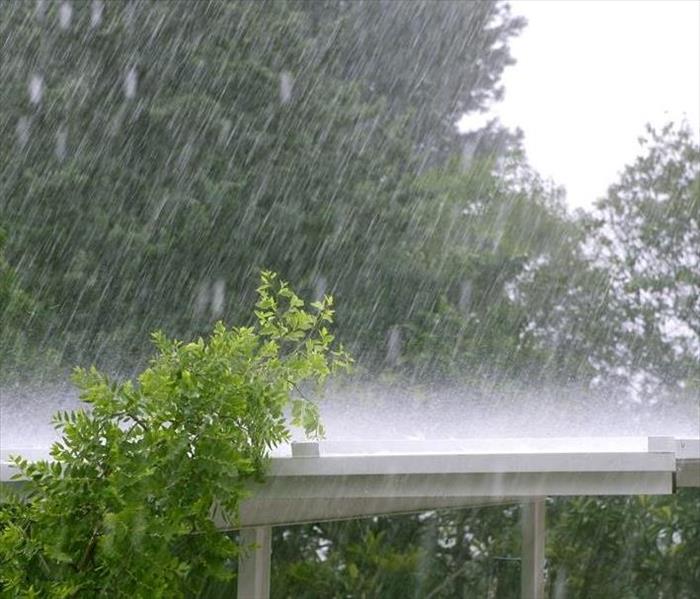Learn These Storm Tips Before the Clouds Gather
1/24/2022 (Permalink)
When you know how to respond after storm damage occurs, you can reduce the long-term consequences of that damage. With more preparation, you'll also increase your confidence during this stressful time, decrease the losses to your home and family, and reduce the amount of money it takes to recover. With the right storm tips, you can avoid many of the complications you'd otherwise face.
Storms Tips To Reduce Damage and Stress
As is generally the case, one of the best ways to avoid storm damage is taking preventative measures:
- Cleaning the gutters and downspouts
- Clearing the yard of debris, overgrowth, and dying branches
- Inspecting the roof and foundation at least once a year
- Putting away or securing yard furnishings and outside toys
After completing these tasks, it's also important to arrange a professional inspection of the roof, the foundation, and the structural integrity of your home. This inspection helps you identify small issues that could become much larger problems because of a storm. The following storm tips guide your actions once the weather clears:
Focus on Safety First
As you begin to assess the damage to your home and property, keep yourself, your family, and your pets safe from hazards such as downed power lines, floodwater, exposed wiring, and broken glass. If there's no power, use a battery-powered flashlight rather than candles or lighters. Be aware of the potential for gas leaks and sewer system problems.
Board Up and Tarp Openings
If you have broken windows or doors or holes in the roof, use plywood and tarps to keep your home secure and to keep out water. Be sure to document the damage and your emergency repairs to share with the insurance company and the adjuster. Any lack of response or permanent repairs could affect the insurance amount you receive for professional cleanup and reconstruction.
Record All Damage
If it's possible to move safely through your property, use a camera to document damage for your insurance claim. It's also important to schedule a professional damage assessment as soon as possible. The insurance company will take this information into consideration as they process your claim. (Before a storm hits, it's important that you understand what type of coverage you have and what you can expect after a storm.)
Contact Necessary Professionals
Your insurance agent is a great source of information and answers to your questions. The agent may also recommend other resources, such as a cleanup and restoration company, federal disaster assistance information, and emergency service providers and management agencies. You only have a 30-day window to file your claim, and there will be many homeowners working with the insurance company because of their own damage.
These storm tips can help you respond after heavy winds and rainfall hit your home. Extreme weather can occur at any time during the year, so make sure you know which actions to take before, during, and after the storm. Mitigation and reconstruction professionals in West Valley City, UT, can provide more information specific to this area. Don't wait for dark clouds before you learn how to protect your home and family.






 24/7 Emergency Service
24/7 Emergency Service
